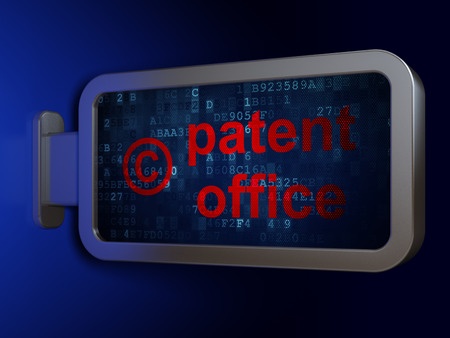What is patent infringement?
What is patent infringement?
Patent infringement is the act of making, using, selling, or offering to sell a patented invention, or importing into the United States a product covered by a claim of a patent without the permission of the patent owner. Further, you may be considered to infringe a patent if you import items into the United States that are made by a patented method, unless the item is materially changed by subsequent processes or becomes a trivial and nonessential component of another product. A person “infringes” a patent by practicing each element of a patent claim with respect to one of these acts. Further, actively encouraging others to infringe patents, or supplying or importing components of a patented invention, and related acts can also give rise to liability in certain cases.
What will happen if someone sues me for patent infringement?
A patent owner can sue you in federal court for patent infringement. If the patent owner is able to prove infringement, the court may order you to pay monetary damages and/or stop infringing one or more patent claims. A court can also find that (1) you do not need a license to the patent because you don’t practice the invention, (2) one or more of the patent claims are not valid, or (3) there are other reasons why the patent owner is not entitled to prevail against you.
The court may conclude that the patent claim is not valid if it is shown that the claimed invention was disclosed in a prior patent or patents, a book, a magazine, a newspaper, a television show or movie, a webpage or other published work before the date of the claimed invention. Also the court may conclude that the patent claim is not valid if it is shown that the claimed invention was offered for sale in this country or was disclosed to the public more than one year before the application for the patent was filed. In addition, the court could find the patent invalid because it does not meet other statutory requirements, such as a sufficient written description of the invention, or because it does not describe subject matter that is patent eligible.
Further, in “exceptional” cases, the costs of your attorney’s fees may be awarded to you if you win the patent case. But if you lose the patent case, you may be held responsible for the attorney’s fees of the patent owner. A court may take all of the facts and circumstances of the case into consideration in deciding whether it will find that one party must pay the attorney’s fees of the other party. The courts may only award attorney’s fees in cases that are out of the ordinary, for example, where the positions of the patent owner are unusually unreasonable.
The basis of the demand letter appears to be my use of another’s product. How can that be, and what should I do?
A patent owner has the right to exclude others from making, selling, offering to sell, importing or using a patented invention. Thus, you may be liable for infringement due to your use of someone else’s technology. If the letter states that you are infringing because you are using or selling a certain kind of product or system, and you obtained that product or system from a business such as a software vendor or other supplier, you may write to that vendor or supplier and ask for help. They may, for example, respond to the letter on your behalf, provide legal assistance, or step in to protect you against the patent owner. You remain free to pursue the other options described above as well. You may also consider changing the way that you use the product. You will have to analyze the patent to determine what steps you can change to avoid the legal dispute. The advice of a patent attorney may be of assistance in making this determination.
Source: USPTO.GOV (www.uspto.gov)
Leave a Reply
You must be logged in to post a comment.

